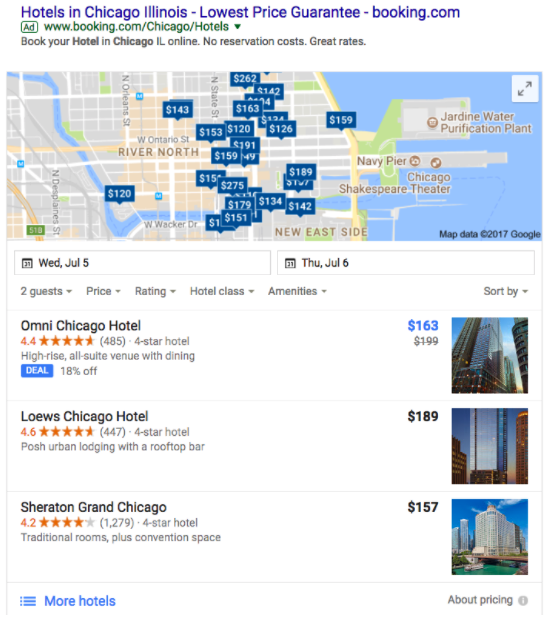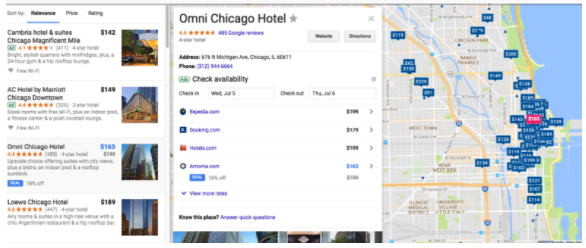Metasearch Pricing Models Explained
As metasearch continues to expand into one of your most important channels for direct revenue, it’s important to understand your choices in terms of pricing models.
At Metadesk, we talk to hoteliers every day and have encountered a wide variety of various pricing models for metasearch advertising. Here’s a handy breakdown of pricing models you might consider, or in some cases, be stuck with.
A Media Placement Fee
We mostly see this pricing model offered by booking engine providers, and if you’re like most hoteliers, your metasearch presence is facilitated by your booking engine.
Most booking engines charge you a percentage of what you allocate as your metasearch media budget, usually between 10% - 15% applied to a media budget ranging from $1,000 - $3,000 per month.
Booking engine providers love this because it’s a low labor source of revenue - they simply need to maintain a tech connection that publishes a live feed of your rates and availability to metasearch channels and collect a tidy fee.
If the percentage you pay in media fees + your metasearch advertising budget is lower than your OTA commissions, this model can be a win. But a problem we see more and more is that OTA’s are spending huge amounts of advertising dollars to dominate metasearch. And if your booking engine doesn’t allow for any media strategy whatsoever, you’re at a huge disadvantage.
Best for:
This pricing model works well for advantaged hotels that tend to fill up based on their location or surplus demand in their market.
One main drawback is if you want to use metasearch for more, like targeting need dates or a certain type of traveler, forget it. Your booking engine isn’t capable of incorporating any type of strategic targeting on your behalf.
Flat Fee + Media Budget
The second-most common pricing model we see at Metadesk in the industry is a flat fee + media budget. We commonly see a range of advertising budgets of around $1,000 - $1,500 with the management fee ranging from $400 - $75 on the low end ($75!!).
At first glance, this seems like a great deal for hoteliers, especially with macro-economic factors like rising marketing costs and operational overhead.
But what we find is that for a management fee so low, the metasearch provider must work hard to limit their labor cost; the aim is to avoid providing support, and typically nobody is actively managing your advertising campaigns.
Instead, these providers try to manage your strategy with algorithmic and programmatic functions alone, which can be problematic without oversight provided by humans. One common problem we see is your rate strategy being compromised by automated price-matching to meet or beat the unscrupulous practice of big OTA undercutting your rates in auction.
In regards to budget, the issue here is two-fold: Many properties would prefer not to pony up even that small amount of cash each month if it can be avoided, and on top of that, the budget can oftentimes be too small to really compete with big OTA.
Best for:A flat fee + media budget is best for small to mid-sized hotels, with mid-range annualized ADR, in low to non-competitive markets.
Pay-Per-Stay Commission Model
A performance-based model that charges a commission for only stays that take place, this model works well for hoteliers that need more from metasearch and who have decided to prioritize ways to increase direct bookings.
Hoteliers like this model because it aligns their interests with that of their metasearch partner. They’re only billed for stays that take place; typically cancellations, and even reservations created by your loyalty members, are excluded from billing.
Another big advantage of this model is the fact that the 3rd party provider assumes all of the financial risk and funds your advertising budget.
It also means that, in theory, your budget is uncapped and only limited by the travel demand in your market. Your metasearch partner will keep spending as long as they’re generating reservations. This means that instead of your cash flow that determines your advertising budget, which can be arbitrary and restrictive, it’s market demand.
Best for:
This pricing model works well for properties in a competitive market that need to utilize metasearch as a strategic advertising channel to help address need periods (like mid-week vs weekend, on vs off-season, etc.) and target individual travel segments.
One huge plus is that properties using this model don’t have to come out of pocket for their metasearch advertising budget.
Organic Only Flat Fee
If you’ve never heard of this pricing model, it’s because we just invented it 😎 And as we write this piece, this model isn’t available anywhere else.
Despite a flat fee + media budget model being very low cost in nature, some hotels simply don’t have enough inventory to make the math make sense. They may struggle to see a return on even a low budget amount of $1,000 per month, and giving away a percentage of the channel is not a great idea when your total monthly profit is low figures.
That’s why we’ve developed a low-cost way for hoteliers to display an organic listing only. And with a strategic rate strategy (sSuch as a loyalty or member rate channeled to meta) your official site will still be there at the moment of booking, alongside OTA channels with a higher rate.
Best for:
Small hotels, or those with a low ADR, where traditional metasearch pricing models just don’t work.
We hope you found this breakdown useful and informative. At Metadesk, we offer a range of metasearch products to best serve your unique needs.
Please reach out if you’d like to discuss your metasearch advertising strategy and which model might work best for your property’s unique needs.




